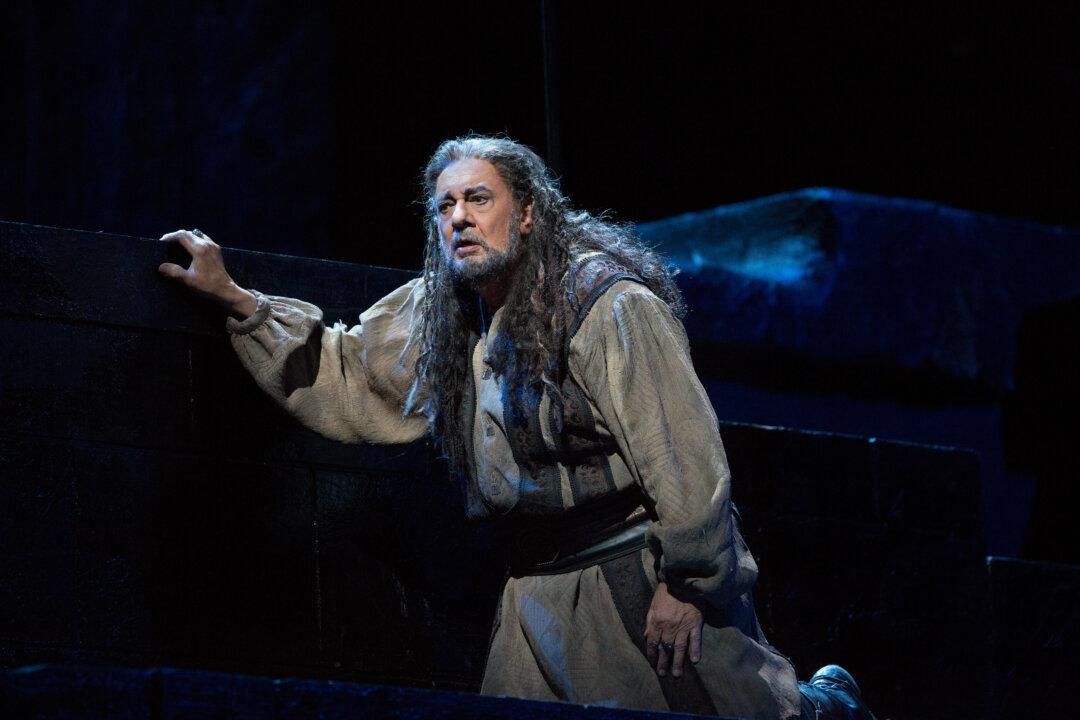NEW YORK—“Nabucco,” which premiered in 1842 at Teatro alla Scala in Milan, was Verdi’s first opera to achieve popular success. This season, the Metropolitan Opera is reviving Elijah Moshinsky’s 15-year-old production. The main draw, and subject of some controversy, is that the opera stars Plácido Domingo in the title role, with James Levine conducting.
The opera takes place in Jerusalem and Babylon during the sixth century B.C. Nabucco (Nebuchadnezzar), the king of Babylon, is waging war against the Israelites. Nabucco’s daughter Fenena is a captive of the Israelites, and she is in love with Ismaele (the nephew of the king of Jerusalem). Fenena’s half-sister Abigaille appears, and she also happens to be smitten with Ismaele.
The most famous piece in the opera is the Act 3 chorus, "Va, pensiero."






